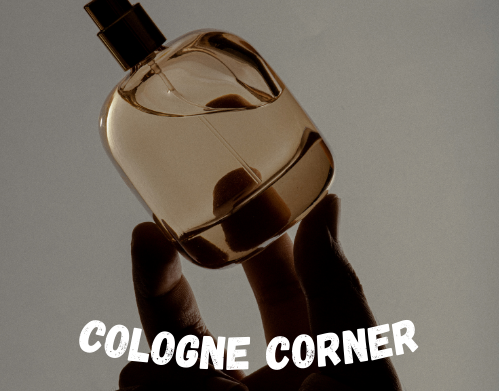This post may have affiliate links, meaning we earn a small commission on purchases through the links (at no extra cost to you). This does not change our opinion but does help support the site. Thank you!
Are you tired of the fleeting fragrance that fades away within minutes? Do you find yourself constantly reapplying your favorite cologne, hoping it will last longer?

Look no further! We’ve got the solution to your scent dilemma. In the quest to make our fragrance linger, the age-old debate persists: should you spray cologne on your clothing or your skin?
It’s a conundrum that many perfume enthusiasts face, but fear not, we’re here to guide you towards the ultimate answer.
In this article, we’ll delve into the pros and cons of each method, revealing the secrets to achieving a long-lasting and captivating aroma.
Get ready to elevate your fragrance game and leave a lasting impression that lingers in the air.
Is It Better to Spray Cologne on Clothing or Skin?
It’s generally better to spray it directly onto your skin rather than your clothing. This is because certain fragrances can leave stains on fabrics.
To avoid this, ensure that the perfume has dried on your skin before putting on your clothes.
Additionally, consider applying the cologne to your pulse points, such as the wrists and neck, which are not typically covered by clothing.
The warmth of these areas can help intensify the scent and ensure it lasts longer.
By following these practices, you can enjoy the full aromatic experience of your cologne without worrying about potential stains on your favorite garments.
Benefits Of Applying Perfume On Clothes
This method includes applying perfume on clothes or other accessories such as bags, hats, and scarves. Some of the benefits of spraying perfume on your clothes include;
1. Scent diffusion. Fragrances last longer on fabrics than on the skin. Perfume on clothes diffuses slowly creating a long-lasting effect.
2. Perfume applied on clothes tends to last longer because fragrances hold onto fragrances longer. Applying perfume on clothes can keep clothes fresh for long.
3. Clothes are convenient for perfume application. When you are in a hurry, you can spritz your perfume on clothes and rush out and your fragrance will still stay fresh for longer. You will not have to worry about irritation.
Disadvantages Of Applying Perfume On Clothes
Applying perfume to clothes can also have some disadvantages. Some of the disadvantages of applying perfume on clothes include;
1. Cloth discoloration and staining. Applying perfume on clothes can cause unwanted stains and discolor clothes.
These stains can be permanent hence difficult to wash out from the fabric and they can end up destroying the fabric. Therefore, we should be careful when spraying perfume on clothes.
2. Overpowering fragrance. Perfume applied on clothes can be too strong for those strong around you. This can happen if you are not careful on the amount of perfume you are applying to clothes.
Too much perfume can be irritating to those near you and this will make your day’s activities less interactive.
Benefits Of Applying Perfume Directly On The Skin
Applying perfume on the skin is also another common method of applying perfume. The warmth of the skin helps in activating the scent making it last longer.
However, perfume applied on the skin should be applied on the right places for better results.
Some of the benefits of applying perfume on the skin include;
1. Long-lasting effect. Applying perfume directly on skin can make the scent last longer. The warmth and natural oils of the body blend with the fragrance and this makes the scent to last longer.
2. Boosts confidence. Fragrance makes you feel good about yourself by boosting your self -confidence. Applying perfume on the skin makes the body connect with the scent hence boosting your self-esteem.
Disadvantages Of Applying Perfume Directly On The Skin
Applying perfume directly on your skin can be disadvantageous. Some of the disadvantages of using perfume directly on the skin include;
1. Skin irritation. Perfumes are made up of different ingredients some of which are not best for a bare skin.
A common ingredient which is used in perfumes is alcohol and can affect the skin by causing dryness which may lead to irritation and itchiness.
Skin rashes. Applying perfume directly on your skin can cause allergic reactions which may result to skin rashes. Therefore it is advisable that you be careful when choosing the right place to apply your perfume.
You may also want to read; How Long Does Cologne Last On Skin?
Does Cologne Last Longer on Clothes or Skin?
When it comes to the longevity of cologne, applying it on textiles rather than skin can help prolong its scent.
If you want your fragrance to last longer throughout the day, consider spritzing some onto your clothes or scarf.
However, it’s important to exercise caution as certain perfumes, particularly those that are more concentrated and have darker, ambery hues, can potentially cause stains on your garments.
To avoid any mishaps, it’s advisable to test the perfume on a small, inconspicuous area of the fabric before applying it more extensively.
By opting for the textile application method, you can enjoy the extended lifespan of your cologne, leaving a lingering and captivating aroma wherever you go.
Is It Safe to Spray Cologne on Skin?
It’s important to avoid rubbing it on your skin. Rubbing perfume on the skin can be damaging, as it disrupts the delicate balance of the fragrance and can lead to inconsistent wear.
Instead, opt for a gentle spritz or spray application, ensuring an even distribution of the scent across your desired areas.
By spraying cologne on your skin rather than rubbing it, you can maximize its effectiveness and longevity.
Remember, it’s best to spray cologne on pulse points such as wrists, neck, and behind the ears, allowing the fragrance to mingle with your body’s natural heat and emit a captivating aroma.
Embrace the art of spritzing and experience the true allure of your favorite colognes on your skin.
What Are the Side Effects of Cologne on Skin?
Here are a few potential side effects:
1. Skin Irritation:
Cologne contains various chemicals and ingredients that can irritate sensitive skin. Common symptoms of skin irritation include redness, itching, and rash.
People with pre-existing skin conditions like eczema or dermatitis may be more prone to experiencing this side effect.
2. Allergic Reactions:
Some individuals may be allergic to specific ingredients found in cologne. Allergic reactions can range from mild to severe and may include symptoms such as itching, redness, swelling, hives, and even difficulty breathing in extreme cases.
It’s important to be aware of any known allergies and check the ingredients list of colognes to avoid triggering an allergic reaction.
3. Photosensitivity:
Certain cologne ingredients, such as citrus oils, can make the skin more sensitive to sunlight. This condition is known as photosensitivity.
Applying cologne to exposed skin and then being exposed to sunlight can result in sunburn, rashes, or increased pigmentation.
It’s advisable to avoid direct sun exposure after applying cologne or use sunscreen to protect the skin.
4. Dryness:
Alcohol is a common component in colognes as it helps the fragrance evaporate quickly. However, alcohol can also have a drying effect on the skin.
Prolonged or excessive use of cologne may lead to dryness, flakiness, and irritation.
5. Contact Dermatitis:
Some individuals may develop contact dermatitis as a result of using cologne. This is an inflammatory skin condition that occurs when the skin comes into direct contact with an irritant or allergen.
Symptoms may include redness, itching, swelling, and blisters.
To minimize the risk of experiencing these side effects, it’s advisable to:
- Perform a patch test: Apply a small amount of cologne to a small area of skin, such as the inner wrist, and observe for any adverse reactions before applying it more widely.
- Choose fragrance-free or hypoallergenic options: If you have sensitive skin or a history of allergies, consider selecting colognes that are labeled as fragrance-free or hypoallergenic. These products typically contain fewer potential irritants.
- Apply sparingly: Use cologne in moderation to avoid overwhelming your skin and potentially triggering adverse reactions.
- Avoid application on broken or irritated skin: If you have any cuts, wounds, or irritated areas on your skin, it’s best to avoid applying cologne to those areas as it may worsen the condition or delay the healing process.
The Wrap-Up
In conclusion, when it comes to the question of whether it is better to spray cologne on clothing or skin, the answer ultimately depends on personal preference and the desired effect.
Spraying cologne on clothing can help the fragrance last longer and avoid direct contact with sensitive skin, but it may alter the fabric or leave stains.
On the other hand, applying cologne directly on the skin allows for a more natural scent and can interact with the body’s chemistry, but it may require reapplication throughout the day.
Ultimately, it is essential to experiment and find the method that suits you best, taking into consideration the fragrance, the occasion, and your personal comfort.
